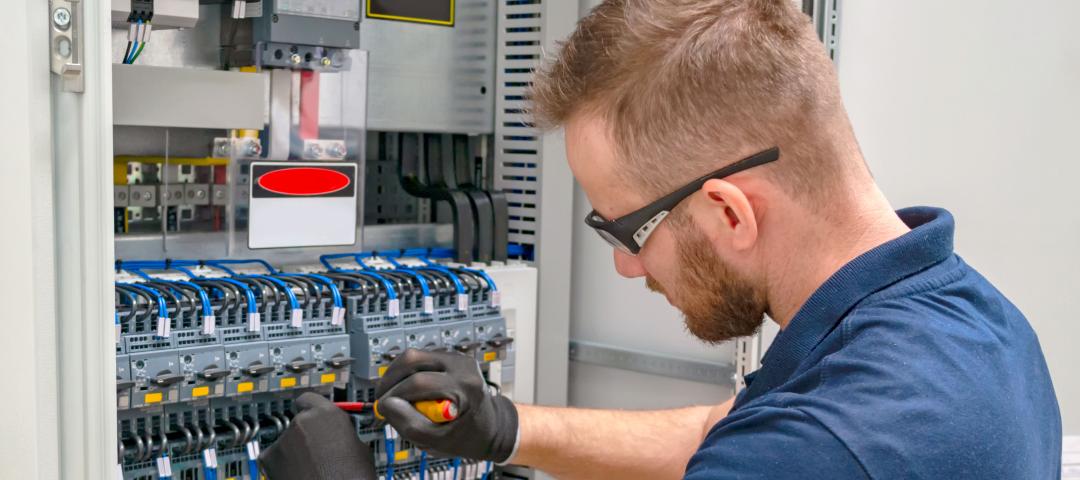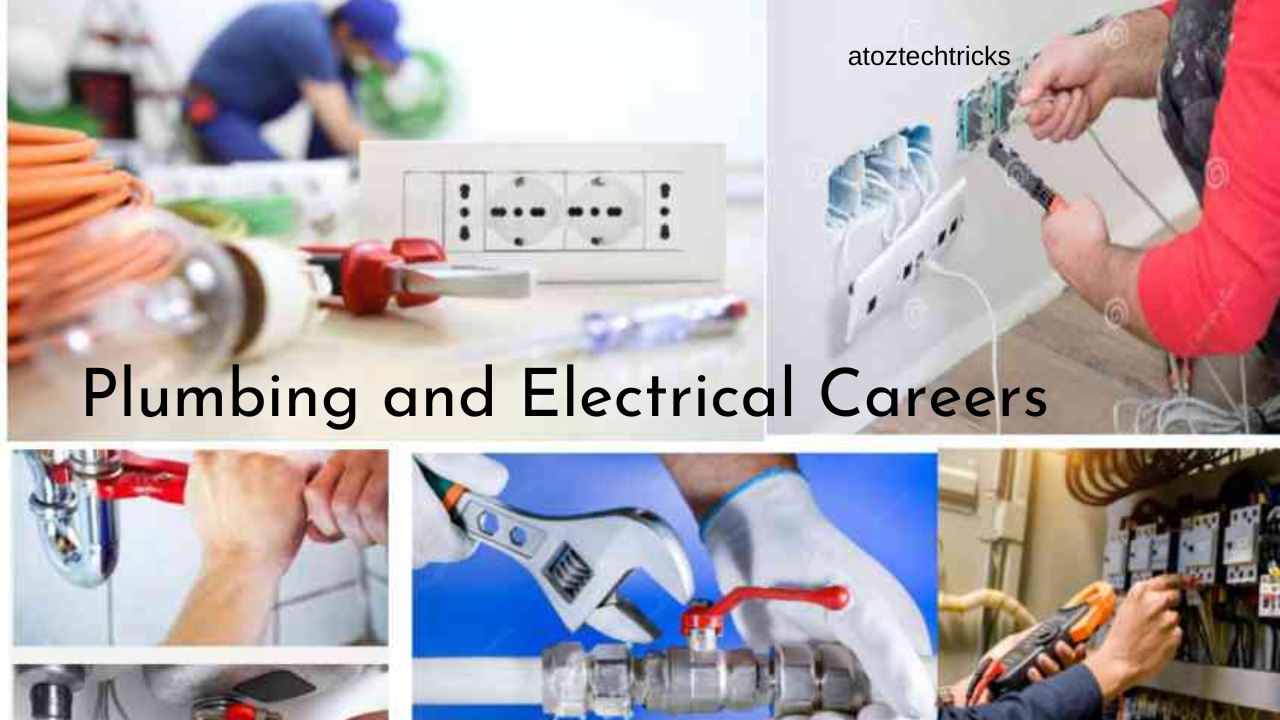Plumbing and Electrical Careers: An In-Depth Exploration
Plumbing and electrical careers are essential to modern society, providing crucial services that keep homes, businesses, and public infrastructure functioning smoothly. Both fields offer rewarding career opportunities with various benefits, including job stability, competitive wages, and the chance to develop specialized skills. This comprehensive guide explores the scope of plumbing and electrical careers, the skills required, training and certification processes, career prospects, and the challenges and rewards associated with each profession.
I. Overview of Plumbing Careers
A. Role of Plumbers
Plumbers are skilled tradespeople who install, repair, and maintain plumbing systems, which include pipes, fixtures, and appliances. Their work ensures that water and waste are properly managed in residential, commercial, and industrial settings. Key responsibilities of plumbers include:
- Installation: Plumbers install piping systems for water supply, drainage, and gas lines. They work with various materials, including copper, PVC, and PEX.
- Maintenance: Routine maintenance tasks include inspecting systems for leaks, corrosion, and blockages. Plumbers ensure that systems comply with building codes and regulations.
- Repair: When issues arise, plumbers diagnose problems and perform repairs. This may involve fixing leaks, replacing faulty components, and addressing issues with water pressure or temperature.
- Emergency Services: Plumbers often respond to emergencies, such as burst pipes or clogged drains, which require immediate attention to prevent property damage and health hazards.
B. Skills and Qualifications
- Technical Skills: Proficiency in reading blueprints, understanding plumbing codes, and using specialized tools is essential. Plumbers must also be adept at problem-solving and troubleshooting complex issues.
- Physical Dexterity: The job often involves working in confined spaces and performing tasks that require manual dexterity and strength.
- Communication Skills: Effective communication with clients, contractors, and team members is crucial for understanding needs, providing estimates, and ensuring customer satisfaction.
- Attention to Detail: Precision is important in plumbing to avoid mistakes that could lead to leaks or system failures.
C. Training and Certification
- Education: A high school diploma or GED is typically required. Courses in mathematics, science, and technical subjects can be beneficial.
- Apprenticeship: Most plumbers start as apprentices, working under the guidance of experienced professionals. Apprenticeships typically last 4-5 years and combine on-the-job training with classroom instruction.
- Licensing: Licensing requirements vary by state or region. Plumbers must pass written and practical exams to obtain a license. Some areas also require continuing education to maintain licensure.
- Certifications: Various certifications, such as those offered by the National Inspection Testing Certification (NITC) or the Plumbing-Heating-Cooling Contractors Association (PHCC), can enhance job prospects and career advancement.
D. Career Outlook and Opportunities
- Job Market: The demand for plumbers is expected to grow due to the ongoing need for plumbing repairs and upgrades in ageing infrastructure. The U.S. Bureau of Labor Statistics (BLS) projects a 4% growth rate in plumbing jobs from 2022 to 2032.
- Specializations: Plumbers can specialize in areas such as residential, commercial, or industrial plumbing. Advanced specializations include pipefitting, steamfitting, and gas fitting.
- Entrepreneurship: Experienced plumbers may choose to start their businesses, offering plumbing services and potentially expanding into related areas such as heating and cooling.

II. Overview of Electrical Careers
A. Role of Electricians
Electricians are professionals who install, maintain, and repair electrical systems in homes, commercial buildings, and industrial facilities. Their work ensures that electrical systems are safe, reliable, and up to code. Key responsibilities of electricians include:
- Installation: Electricians install wiring, outlets, switches, and electrical panels. They work with various systems, including lighting, heating, and air conditioning.
- Maintenance: Regular maintenance involves inspecting electrical systems for faults, ensuring compliance with electrical codes, and performing upgrades or replacements as needed.
- Repair: Electricians diagnose and repair electrical issues, such as faulty wiring, malfunctioning outlets, or circuit breaker problems. They use specialized tools and equipment to test and troubleshoot issues.
- Emergency Services: Similar to plumbers, electricians often respond to emergencies, such as power outages or electrical fires, which require immediate intervention to restore safety and functionality.
B. Skills and Qualifications
- Technical Skills: Electricians must have a thorough understanding of electrical systems, blueprints, and electrical codes. Proficiency in using tools like multimeters, wire strippers, and conduit benders is essential.
- Problem-Solving: The ability to troubleshoot electrical issues and devise effective solutions is a critical skill for electricians.
- Safety Awareness: Electricians must prioritize safety, following strict protocols to prevent accidents and ensure safe working conditions.
- Communication Skills: Effective communication with clients, contractors, and team members is important for understanding project requirements and providing clear explanations of work performed.
C. Training and Certification
- Education: A high school diploma or GED is typically required. Courses in mathematics, physics, and technical subjects can be beneficial.
- Apprenticeship: Most electricians start their careers as apprentices, receiving hands-on training under the supervision of experienced electricians. Apprenticeships typically last 4-5 years and include both classroom instruction and on-the-job training.
- Licensing: Electricians must obtain a license to practice, which typically involves passing written and practical exams. Licensing requirements vary by state or region and may include continuing education.
- Certifications: Certifications from organizations such as the National Electrical Contractors Association (NECA) or the International Brotherhood of Electrical Workers (IBEW) can enhance job prospects and career advancement.
D. Career Outlook and Opportunities
- Job Market: The demand for electricians is projected to grow by 7% from 2022 to 2032, according to the BLS. This growth is driven by increasing construction activities and the need for electrical system upgrades in existing buildings.
- Specializations: Electricians can specialize in areas such as residential, commercial, or industrial electrical work. Advanced specializations include telecommunications, renewable energy, and high-voltage systems.
- Entrepreneurship: Experienced electricians may choose to start their businesses, offering electrical services and potentially expanding into related areas such as home automation or energy management.

III. Comparison of Plumbing and Electrical Careers
A. Job Similarities
- Technical Expertise: Both plumbers and electricians require specialized technical skills and knowledge to perform their jobs effectively.
- Training Requirements: Both professions typically involve apprenticeships and certification processes, which provide hands-on training and theoretical knowledge.
- Job Demand: Both careers offer strong job prospects due to the ongoing need for skilled tradespeople to maintain and repair essential systems.
- Work Environment: Both plumbers and electricians may work in various settings, including residential, commercial, and industrial environments. They may also respond to emergencies requiring immediate attention.
Conservation Careers: Navigating a Path to Protect the Planet
B. Job Differences
- Nature of Work: Plumbers focus on water and waste systems, while electricians work with electrical systems and wiring. The nature of their work involves different tools, techniques, and safety considerations.
- Training Focus: Plumbers receive training in plumbing codes, pipefitting, and fixtures, while electricians focus on electrical codes, wiring, and circuitry.
- Specializations: The specializations within each field are distinct. For example, plumbers may specialize in gas fitting or pipefitting, while electricians may specialize in high-voltage systems or renewable energy.
C. Challenges and Rewards
- Challenges: Both careers involve physical labour and working in potentially challenging conditions, such as confined spaces or high elevations. Safety is a critical concern in both fields, requiring strict adherence to protocols and procedures.
- Rewards: Both careers offer the satisfaction of solving problems and making a tangible impact on people’s lives. They also provide opportunities for career advancement, entrepreneurship, and specialization.

Plumbing and electrical careers are integral to maintaining and improving modern infrastructure. Both fields offer rewarding opportunities for individuals with the right skills, training, and dedication. As society continues to evolve, the demand for skilled plumbers and electricians is likely to remain strong, providing stable and fulfilling career paths. Whether you are considering a career in plumbing or electrical work, understanding the roles, skills, and opportunities associated with each field can help you make an informed decision and pursue a successful and satisfying career.




Post Comment